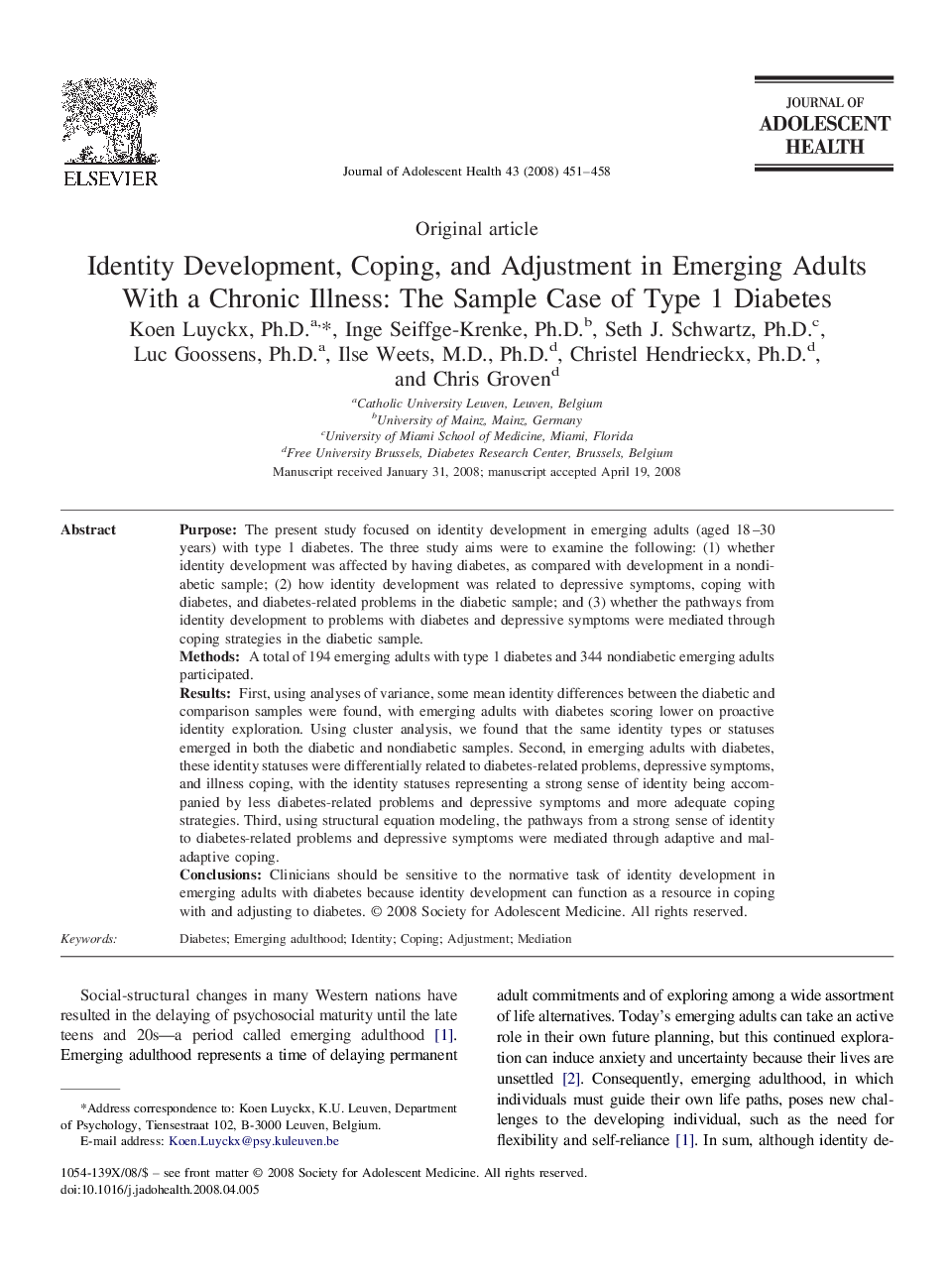| Article ID | Journal | Published Year | Pages | File Type |
|---|---|---|---|---|
| 1079718 | Journal of Adolescent Health | 2008 | 8 Pages |
PurposeThe present study focused on identity development in emerging adults (aged 18–30 years) with type 1 diabetes. The three study aims were to examine the following: (1) whether identity development was affected by having diabetes, as compared with development in a nondiabetic sample; (2) how identity development was related to depressive symptoms, coping with diabetes, and diabetes-related problems in the diabetic sample; and (3) whether the pathways from identity development to problems with diabetes and depressive symptoms were mediated through coping strategies in the diabetic sample.MethodsA total of 194 emerging adults with type 1 diabetes and 344 nondiabetic emerging adults participated.ResultsFirst, using analyses of variance, some mean identity differences between the diabetic and comparison samples were found, with emerging adults with diabetes scoring lower on proactive identity exploration. Using cluster analysis, we found that the same identity types or statuses emerged in both the diabetic and nondiabetic samples. Second, in emerging adults with diabetes, these identity statuses were differentially related to diabetes-related problems, depressive symptoms, and illness coping, with the identity statuses representing a strong sense of identity being accompanied by less diabetes-related problems and depressive symptoms and more adequate coping strategies. Third, using structural equation modeling, the pathways from a strong sense of identity to diabetes-related problems and depressive symptoms were mediated through adaptive and maladaptive coping.ConclusionsClinicians should be sensitive to the normative task of identity development in emerging adults with diabetes because identity development can function as a resource in coping with and adjusting to diabetes.
